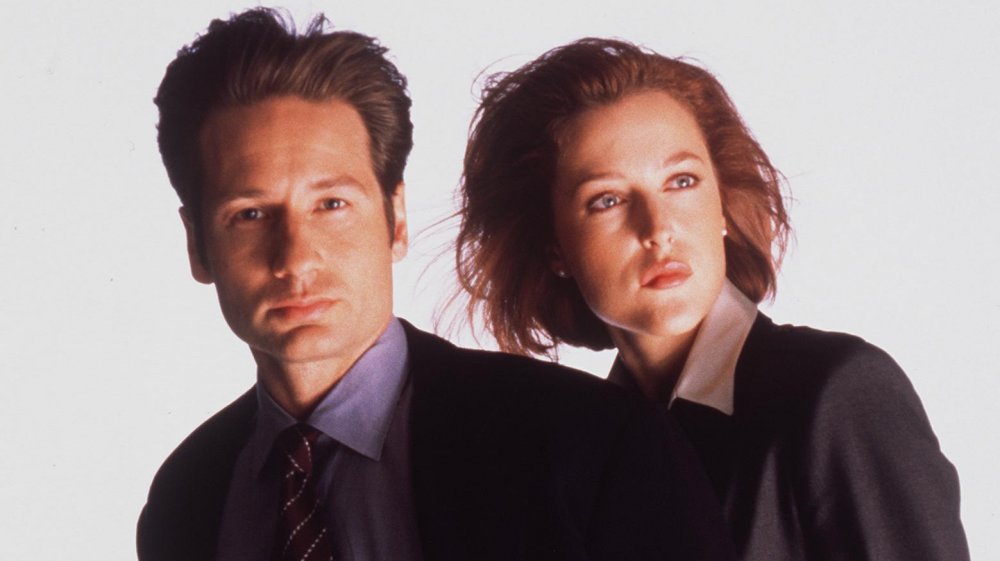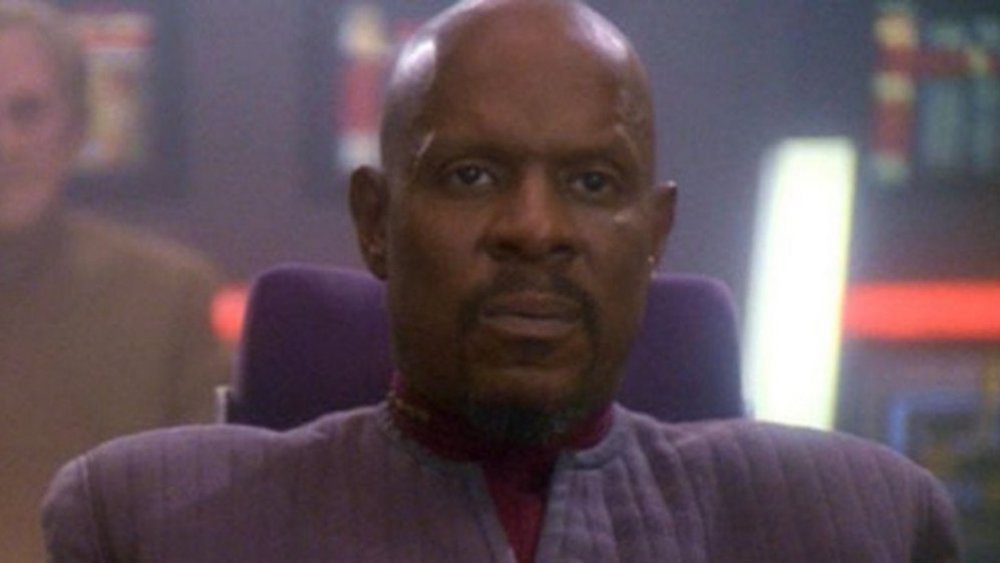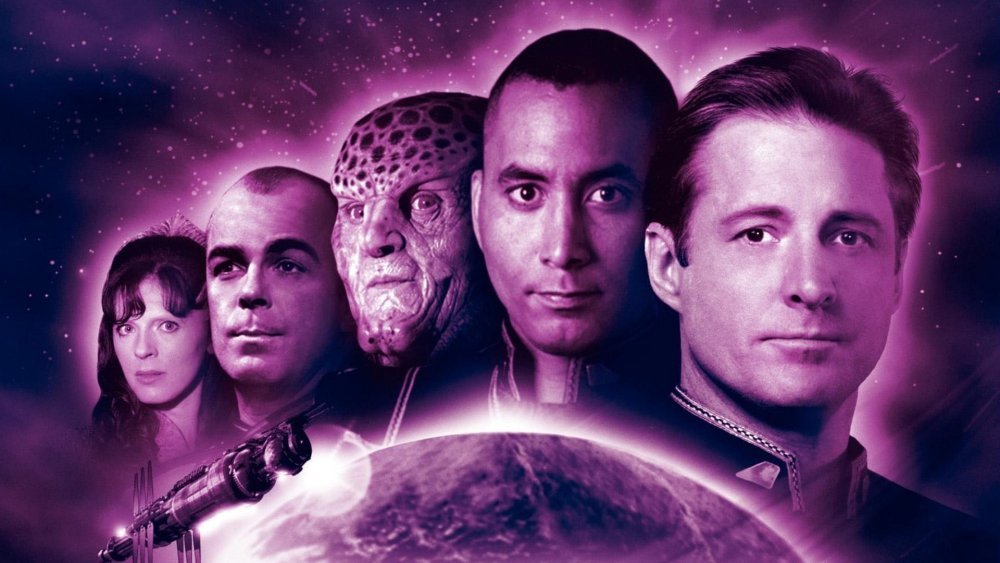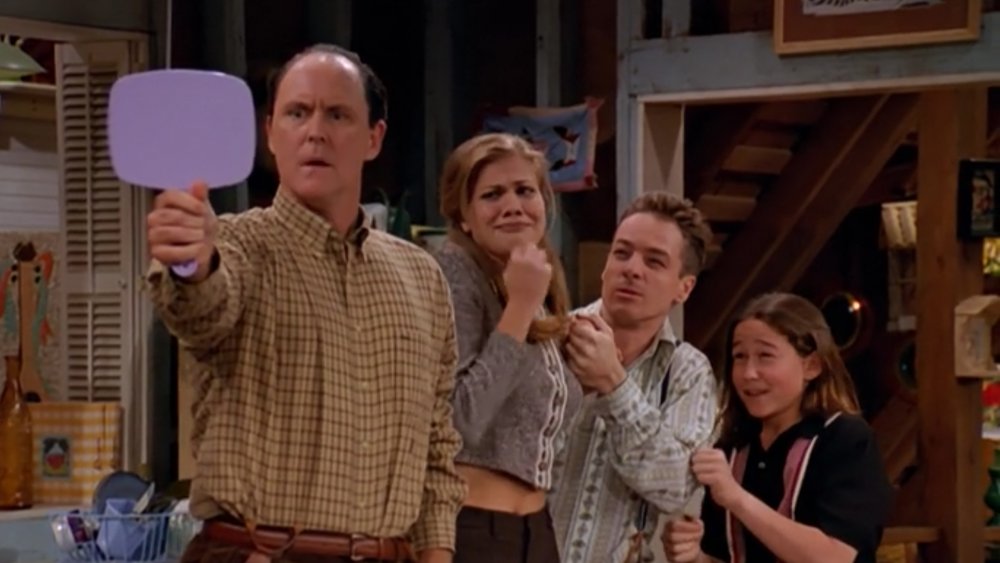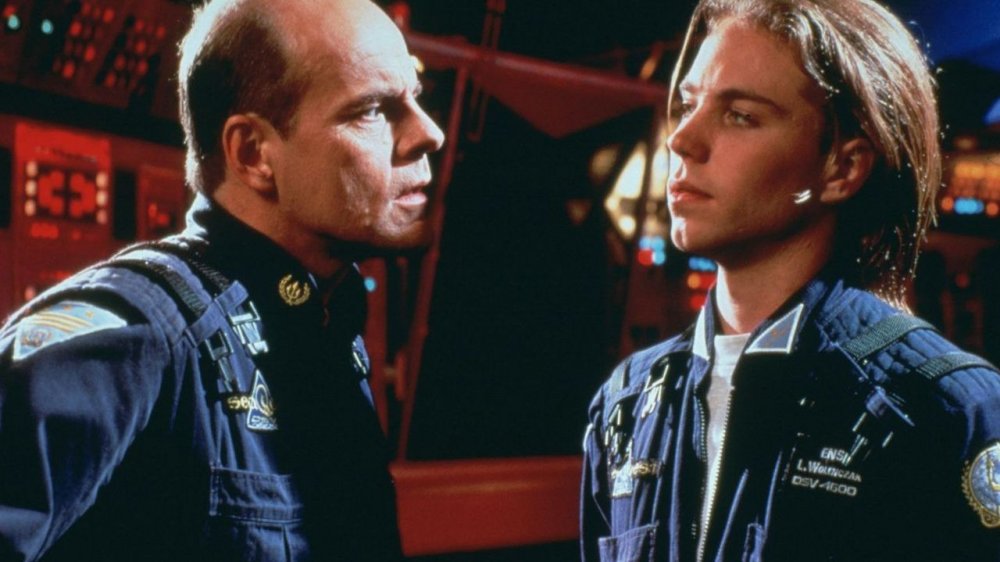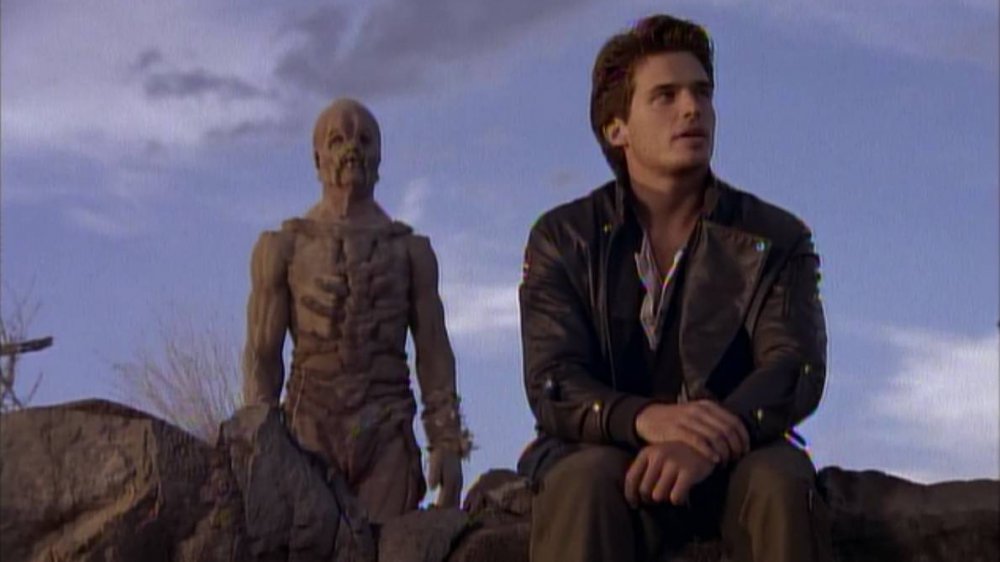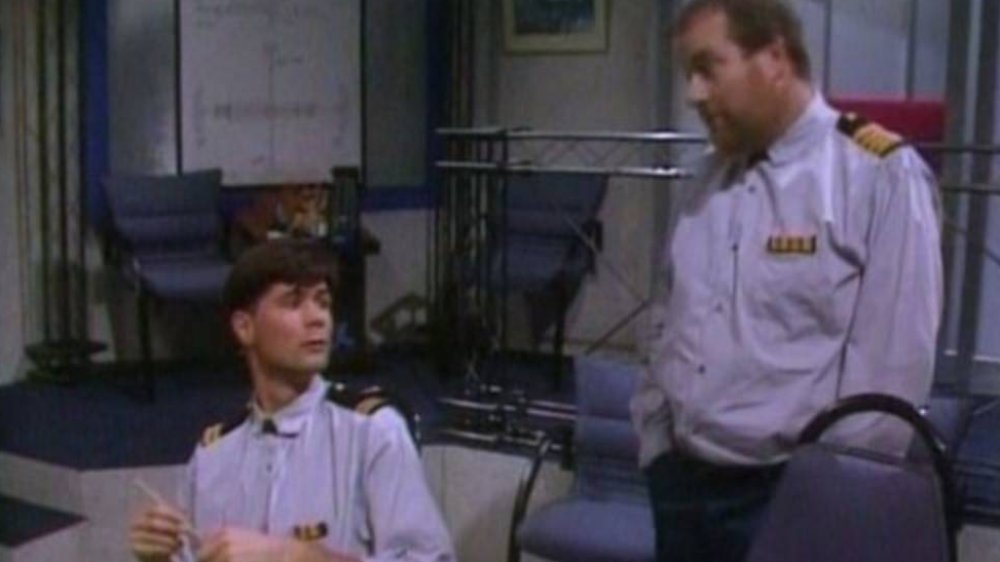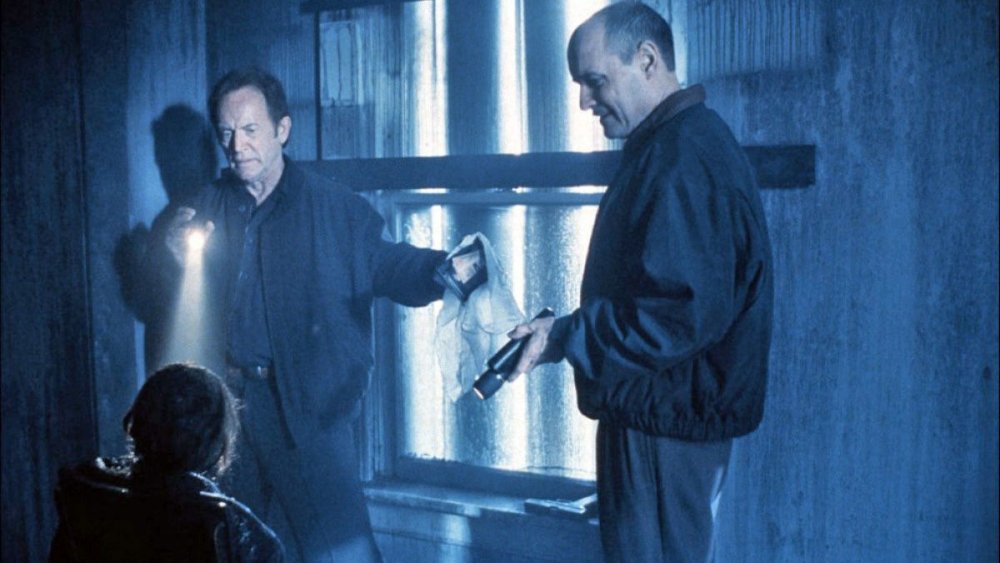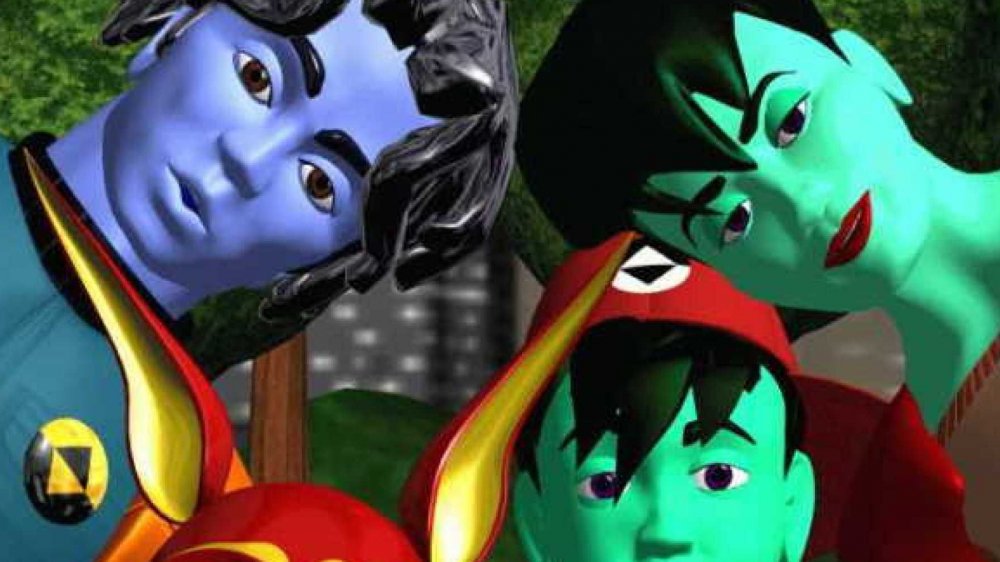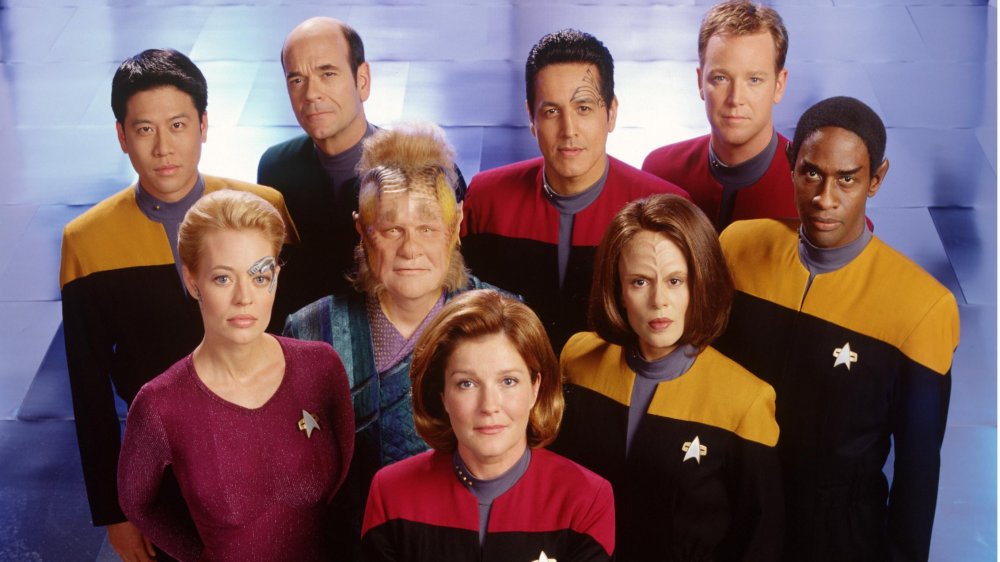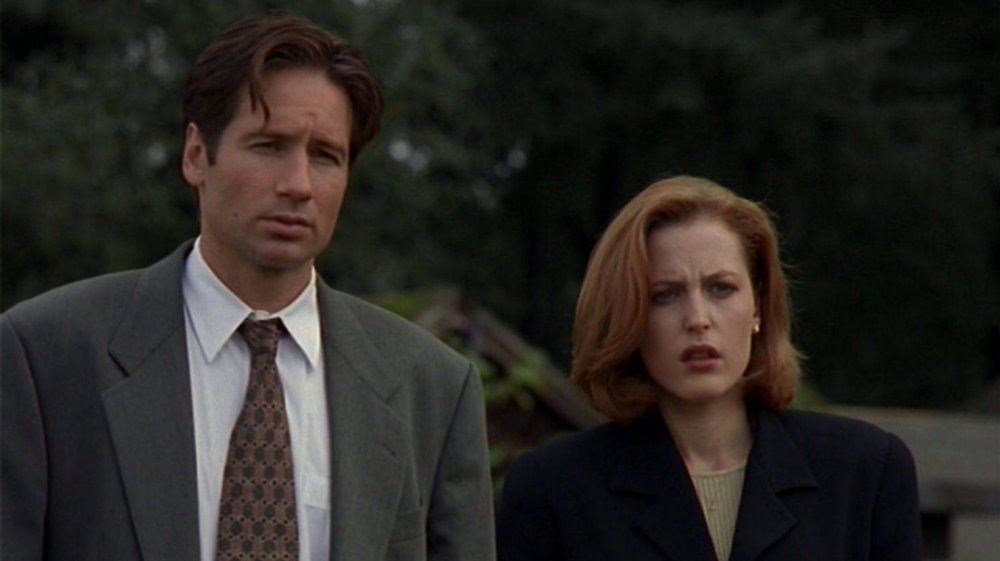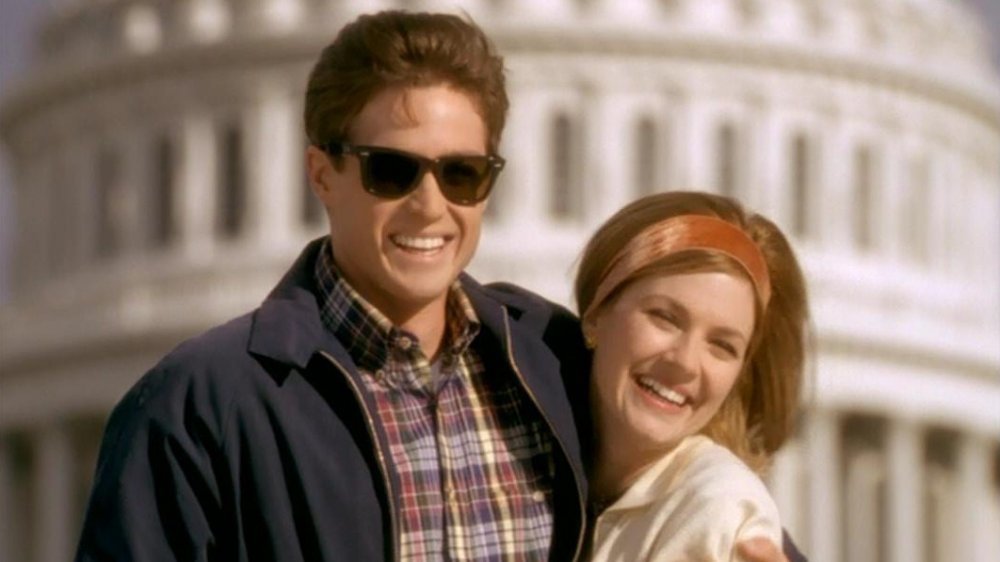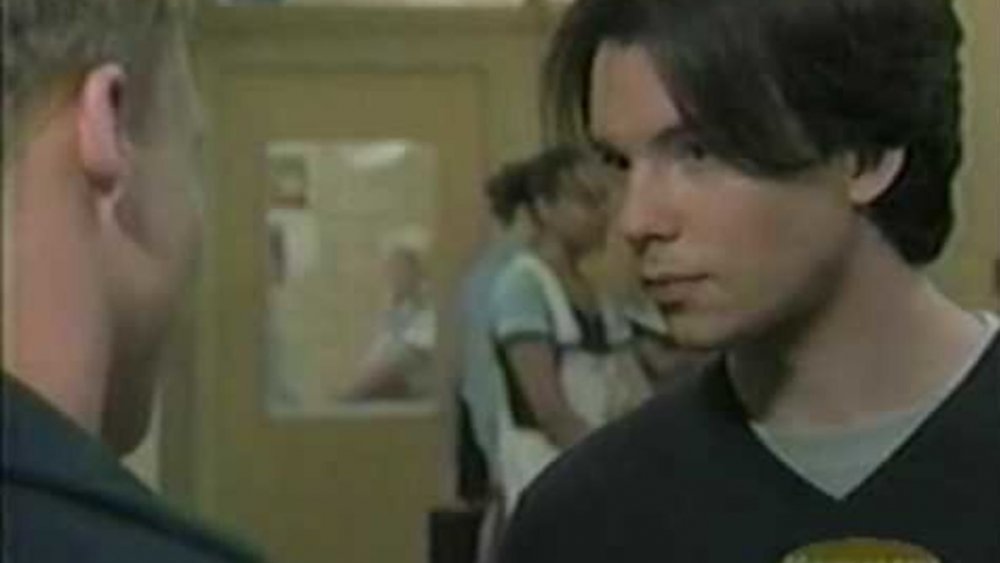The Best Sci-Fi Shows Of The '90s
It's hard to turn on the TV or walk into the cinema without seeing science fiction dominate the landscape. The general masses are now accustomed to stories about aliens and robots from the future. But it wasn't always like this. There once was a time when sci-fi was generally relegated to pulp magazines. If you wanted to try to pinpoint the general public's fascination with outlandish tales about moon men and time travel, then you need to go back to the 1990s.
Science fiction took off in a big way in this decade. Movies like Jurassic Park and Independence Day lit up the box office and got people interested in these kinds of stories. But you didn't have to look at the big screen to find such tales. You just needed to turn on your television set. The best sci-fi shows from the '90s proved you didn't need huge budgets to tell entertaining, thought-provoking stories. You just needed solid writing and an intriguing premise. Which one of these shows did you watch relentlessly in between listening to Pearl Jam and munching on Dunkaroos?
Star Trek: Deep Space Nine took you on a journey
For many fans, Star Trek: Deep Space Nine is the one truly worthy successor to the original series. This Star Trek series follows the adventures of a crew located on the space station Deep Space Nine, and it continues ideas set forth in The Next Generation, namely the conflict between the Cardassians and the Bajorans.
While it's set in the Star Trek universe, Deep Space Nine earned a lot of praise for being accessible to people who'd never watched anything Star Trek-related before. Since the show didn't necessarily focus on exploration as the space station wasn't traveling, the show could instead focus on themes connected to the central conflict. For example, the show often dealt with issues related to the price of war and various nations having to resolve differences.
On top of all that, Deep Space Nine has one of the most eclectic casts out of any Star Trek series. Plus, the show is noteworthy for having Avery Brooks play Benjamin Sisko, the series' first black captain and possibly the very best Star Trek captain of all. Deep Space Nine showed there was still ground to be broken on television, and it's still beloved by Trekkies today.
Babylon 5 advanced storytelling in sci-fi
Babylon 5 is an incredible addition to science fiction, primarily in the way the series was constructed. It consists of five seasons and a total of 110 episodes, but the show was designed to function as a "novel," with each episode being a single chapter in that book. As a result, the show is incredibly serialized. Characters' actions had real consequences, and they would sometimes deal with the fallout of certain decisions for several episodes after the fact. It was a unique concept considering most shows at the time would confine events to single episodes without really referencing them later.
But the show is more than just a TV writer's dream. It also dealt with heavy issues relevant to the modern world. The show deals with the struggle between war and peace, and it deals with themes from religion to substance abuse. While there are alien species galore in the show, it all centers back to a group of humans trying to protect Earth from totalitarianism. It's one of the smartest yet overlooked sci-fi shows of the '90s, and it's worth another watch.
3rd Rock From the Sun made science fiction funny
Not all science fiction has to deal with war and ruminations on the nature of man. Some shows just use a sci-fi premise to hilarious effect, like in 3rd Rock From the Sun. The show focuses on four extraterrestrials who pose as humans on Earth to study the behavior of mankind. As a result, the series takes a look at human behavior from the outlook of an outsider, and this often results in humorous gags and jokes.
One of the best episodes of the series comes in season five with "Dial M for Dick." The family ends up in an interactive murder mystery, but the only problem is that they don't realize the murder at hand is fake. These kinds of misinterpretations define the series, and if you grew up in the '90s, then there's a good chance you tuned in to NBC frequently to see what antics they'd get into next. We also have this show to thank for introducing the world to a young Joseph Gordon-Levitt, who would go on to star in films like 500 Days of Summer and Inception. And it all started with a little show about aliens.
SeaQuest DSV was a '90s show that gave us a glimpse into the future
One of the intriguing things about watching sci-fi properties from the past is seeing how we've outpaced much of the technology in them. When SeaQuest DSV began, it was set in the year 2018, and obviously, we're living in a slightly different world than the one presented in this undersea drama. Still, the show feels incredibly timely, even with its super '90s vibe. In the series, mankind has depleted all natural resources on land, so they've sent a submarine to look for more resources on the ocean floor. Environmental issues and political disputes are featured prominently on the show, particularly in the earlier seasons.
While it's become one of the most relevant programs to come out of the '90s, the show had trouble getting off the ground. And despite Steven Spielberg serving as an executive producer, it never really earned the same level of interest as something like Star Trek. The show was canceled after three seasons. But while it may not have gotten the best ratings, but SeaQuest DSV is worthy of nostalgia. Perhaps there's something a modern audience can take from the show that people in the '90s couldn't. After all, it features a talking dolphin, some pretty cool visuals, and cameos from both Mark Hamill and William Shatner.
Earth 2 has become a cult gem
Earth 2 may have only lasted one season, but it made quite the impact in those 21 episodes. The show was nominated for numerous awards, including a Saturn and a Primetime Emmy, and it broke new ground by showing what kind of exciting stories networks could tell on TV.
The series follows a group of humans leading a force called the Eden Project. Their goal is to travel to an Earth-like planet to hopefully find a cure for an illness wiping out children. The idea of traveling to another planet when Earth no longer becomes viable is something still thrown about to this day, and Earth 2 may one day serve as inspiration for leading the charge in such an endeavor.
But really, the show is also noteworthy for having Debrah Farentino play the lead, making her the first female commander of a sci-fi TV show. Yes, it beat Star Trek: Voyager by just a few months. Besides that, Earth 2 really succeeds by focusing on the relationships within Project Eden, building a whole lot of human drama in a sci-fi landscape. Plus, with Tim Curry showing up and creating trouble for everyone for a couple of episodes, how could you pass on that?
Jupiter Moon brought a soap opera to space
Despite taking place on the outskirts of the planet with the big red dot, Jupiter Moon doesn't really deal with hefty themes. Instead, it focuses on the mundane lives of university students aboard a space shuttle. The show is more of a soap opera set during the year 2050, where the space ship Ilea orbits around Jupiter, and over time, the series comes to focus on an attempt to take the ship into the stars called the Daedalus Project.
Jupiter Moon really runs the gamut of intense storylines. Sometimes the show will focus on romantic subplots between various characters, and other times, the focus is on natural disasters that strike the space ship. It can be over-the-top and melodramatic, but what else would you expect from a soap opera? For people who want a sci-fi show that doesn't have the fate of humanity at stake, Jupiter Moon is accessible, escapist entertainment that's great to have on in the background.
Millennium made sci-fi a little darker
For TV viewers who weren't afraid to dive into the dark psyche of humanity, Millennium was there to take bold risks. The show was created by Chris Carter, who's also responsible for developing The X-Files, and similarly, Millennium tells the story of a former FBI agent who now works for the mysterious Millennium Group. But this agent has the special ability to see into the minds of criminals. When the series began, it primarily focused on Frank Black (Lance Henriksen) tracking down murderers, but as the series went on, it dove more into the Millennium Group that hired him.
The show lasted for three seasons and a total of 67 episodes, although it was canceled before the finale. But for completionists who want to finish a series, you'll be happy to hear that Millennium did, in fact, get an ending, albeit on a different show. The seventh season of The X-Files features an episode called "Millennium" that concludes the story of Frank Black's time working for the Millennium Group. Still, if you're looking for scary sci-fi that really delves into the darkness, then Millennium is definitely worth checking it out.
ReBoot introduced '90s kids to sci-fi
Kids in Canada got a chance to see CGI sci-fi every week in the form of ReBoot. This action-adventure series follows Bob, Enzo, and Dot Matrix as they keep a computer system safe from devastating viruses. The graphics may look clunky by today's standards, but the show was revolutionary at the time. Plus, considering the series takes place inside a computer system, it makes sense that the characters would be limited by the processing power of computers of that era.
The show lasted for four seasons, spanning between 1994 and 2001. But much like whatever you upload onto the internet, you can't get rid of something this good so easily. A couple of years ago, it was announced that the show would receive a ... well, reboot. Now you can watch ReBoot: The Guardian Code on Netflix, which brings the series into the 21st century in high-flying fashion. But as for the original itself, it actually helped kids understand computers better, and you've got to give the show credit. Not only did it feature one of the best animated villains of the '90s, it also featured one of the darkest endings in the history of kids' shows, with the villain doing a scary amount of damage for a children's cartoon.
Star Trek: Voyager continued the series' legacy in the '90s
Star Trek: Voyager broke new ground for the franchise. It was the first Star Trek series to feature a female lead, but Kathryn Janeway was far from the only strong female character on the show. Voyager also introduced fans to Seven of Nine, a former Borg drone who switches allegiances and joins the crew.
The show was able to explore areas of the universe that other series wouldn't have been able to. The premise follows that the Voyager spaceship is 75 years away from home, meaning the characters occasionally need to — and get away with — ignoring Starfleet protocol in order to survive. The show was also able to introduce brand new alien species, such as the Hirogen. But eventually, the Borg — those fan-favorite villains — became the main antagonists.
The show has become an essential component of the Star Trek mythos. Today, it's worth watching just to see all of the insane celebrity cameos, such as Dwayne "The Rock" Johnson, Tom Morello, and Sarah Silverman.
The X-Files made you believe
For much of the '90s, you couldn't flip through a TV Guide without seeing the praises of a little show called The X-Files. In case you haven't watched this masterpiece of a series, it follows Dana Scully (Gillian Anderson) and Fox Mulder (David Duchovny), two FBI special agents who investigate cases of the paranormal. Over the course of the show, they look into events involving aliens and all kinds of unexplainable creatures.
The show initially ran from 1993 to 2002, but fans just couldn't get enough of Scully and Mulder. The show also spawned two feature films, as well as a revival of the series itself that ran from 2016 to 2018. It's a great show that's held up surprisingly well thanks to its utilization of spirituality and conspiracy theories, themes that are still all too prevalent today. Even newcomers who've never seen an episode before can start today and become fully engrossed in the series. The chemistry between Duchovny and Anderson always keeps your eyes on the screen, regardless of what the monster of the week is.
Dark Skies made you question everything
After The X-Files became a cultural phenomenon, every other network tried to emulate that success with their own prestigious sci-fi series. Many of these were pretty forgettable, but one X-Files knock-off really stands apart from the rest. Dark Skies ran on NBC from 1996 to 1997 for just one season, but it made quite the impact during that time. The series focuses on the idea that American history as most people know it as a lie. In fact, aliens have been on Earth since the 1940s, and the government has covered up their existence since. The show follows John Loengard (Eric Close) and Kim Sayers (Megan Ward) as they try to uncover the truth about this extraterrestrial group known as "the Hive."
The show frequently incorporates real-life events into its storylines. For example, one of the best episodes, "Moving Targets," follows the aftermath of John F. Kennedy's assassination as John and Kim try to prevent the Hive from killing world leaders at his funeral. This remix of American history gets incredibly intriguing as the series goes on. It's just a shame it got canceled before it got a chance to really dive into its premise.
Animorphs proved teens could be heroes
The Animorphs book series always had some of the coolest covers at the Scholastic Book Fair. The popularity of the books naturally led to a television adaptation on Nickelodeon. The show lasted two seasons from 1998 to 2000, but for fans of the books, those seasons were enough to cement their love for the franchise.
The series follows five teenagers who come across an alien who gives them the power to transform into animals to save the world from a dangerous alien race known as the Yeerks. Interstingly, the book series actually got pretty dark as they dove into the horrors of war. If the TV show had been allowed to continue, it's unlikely it would've delved into these aspects of the books, but it's intriguing to think about how they may have been adapted to be suitable for airing on Nickelodeon. But at least we got the chance to see 26 episodes come to life on our television screens.
